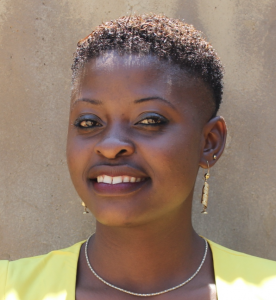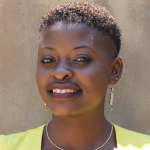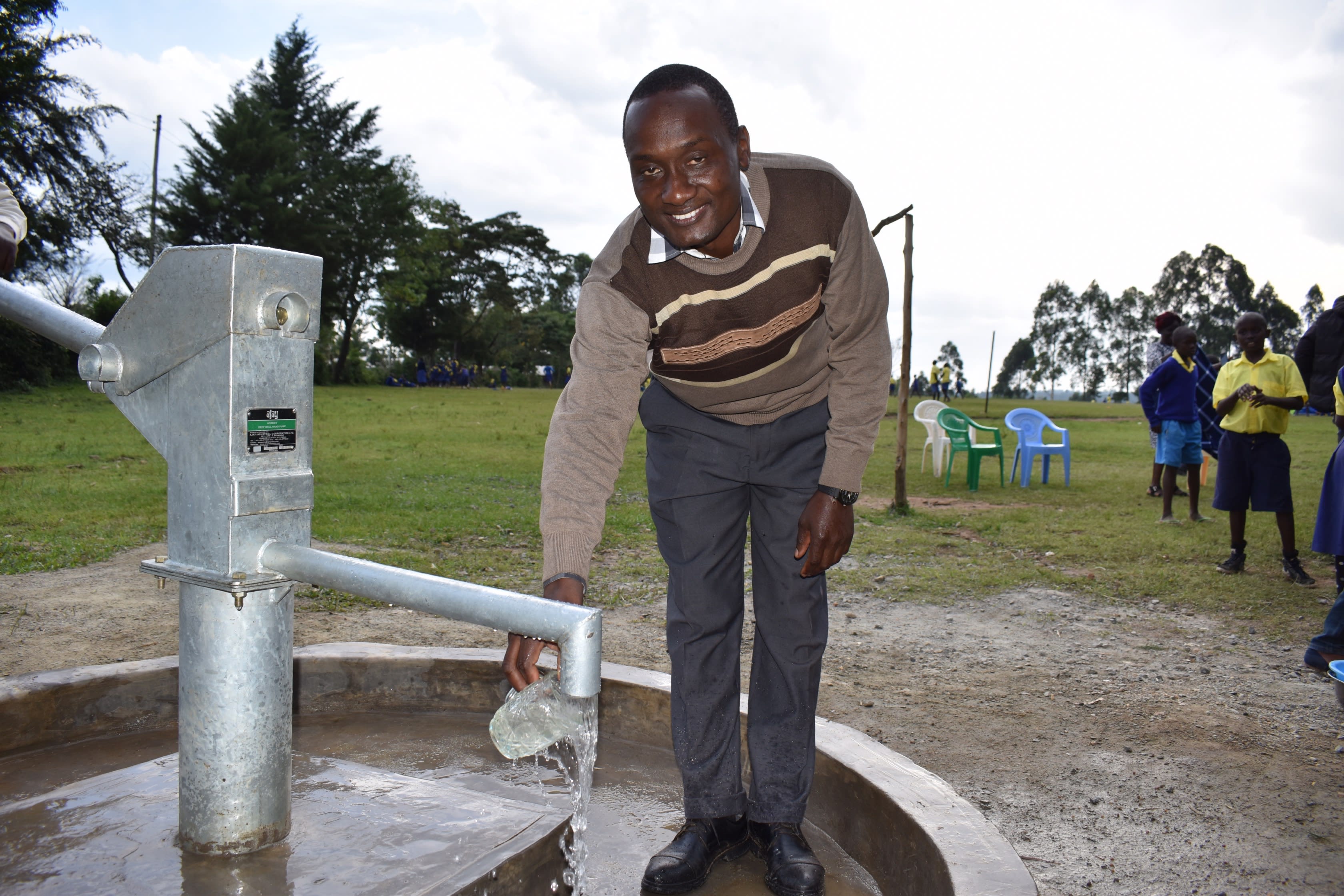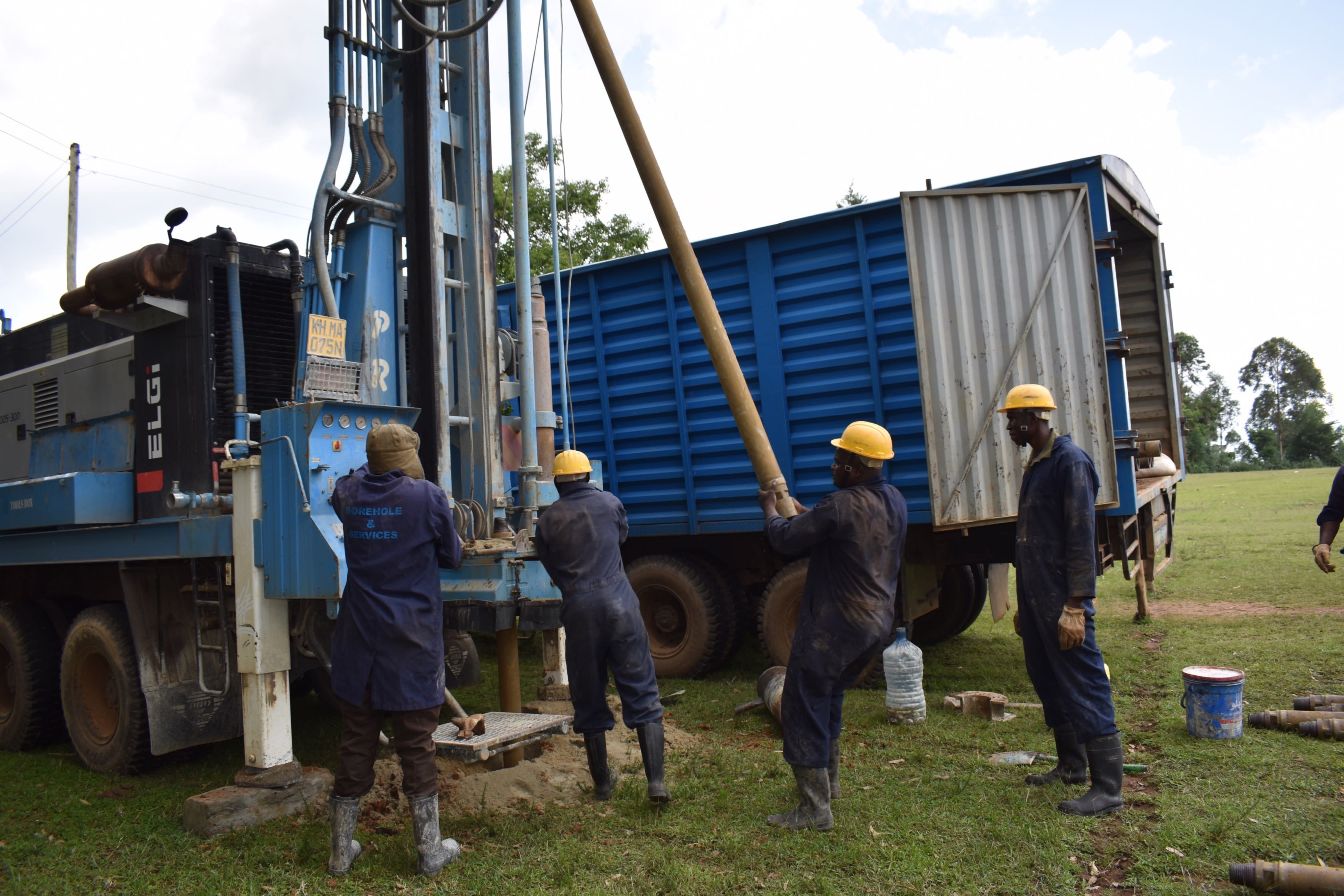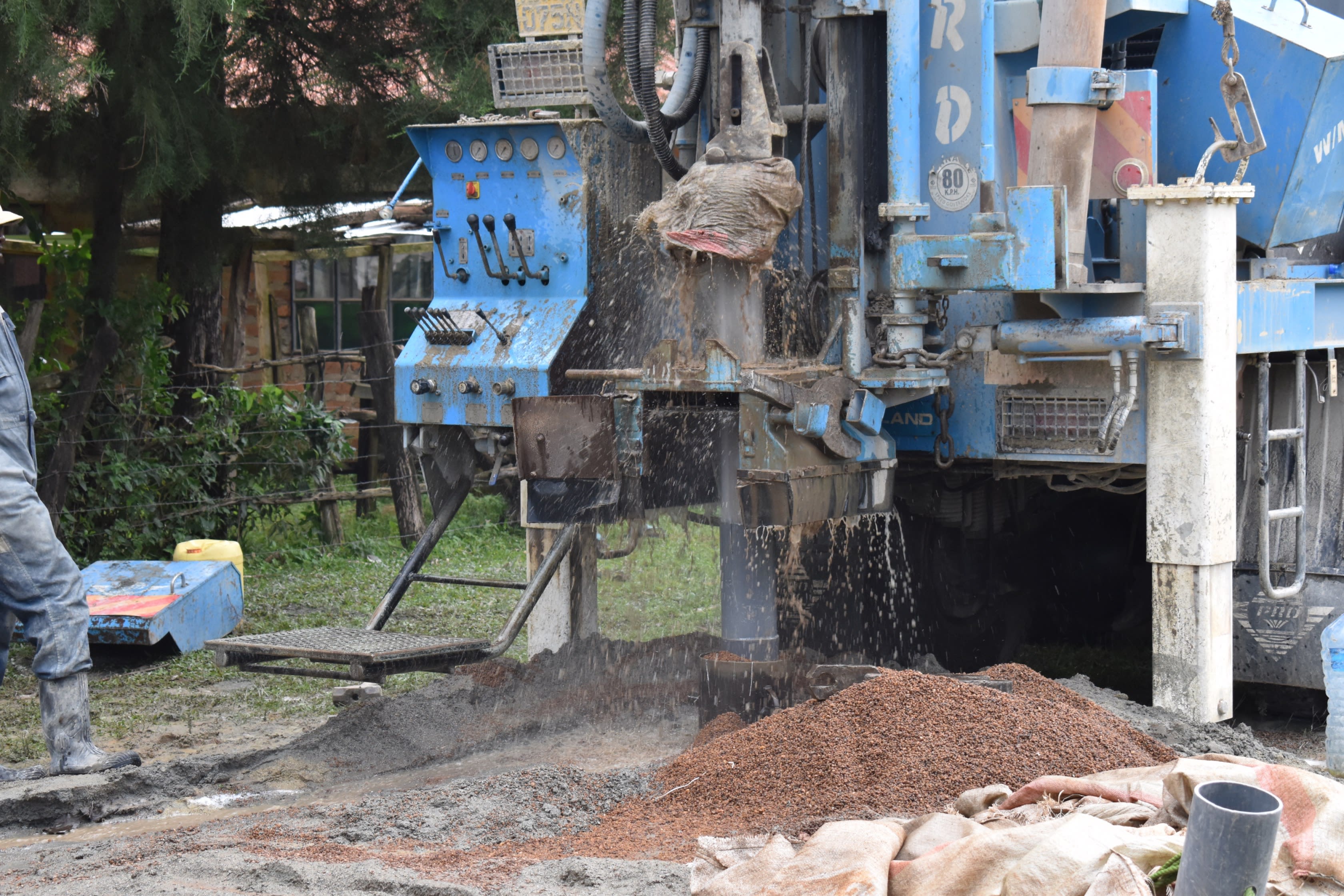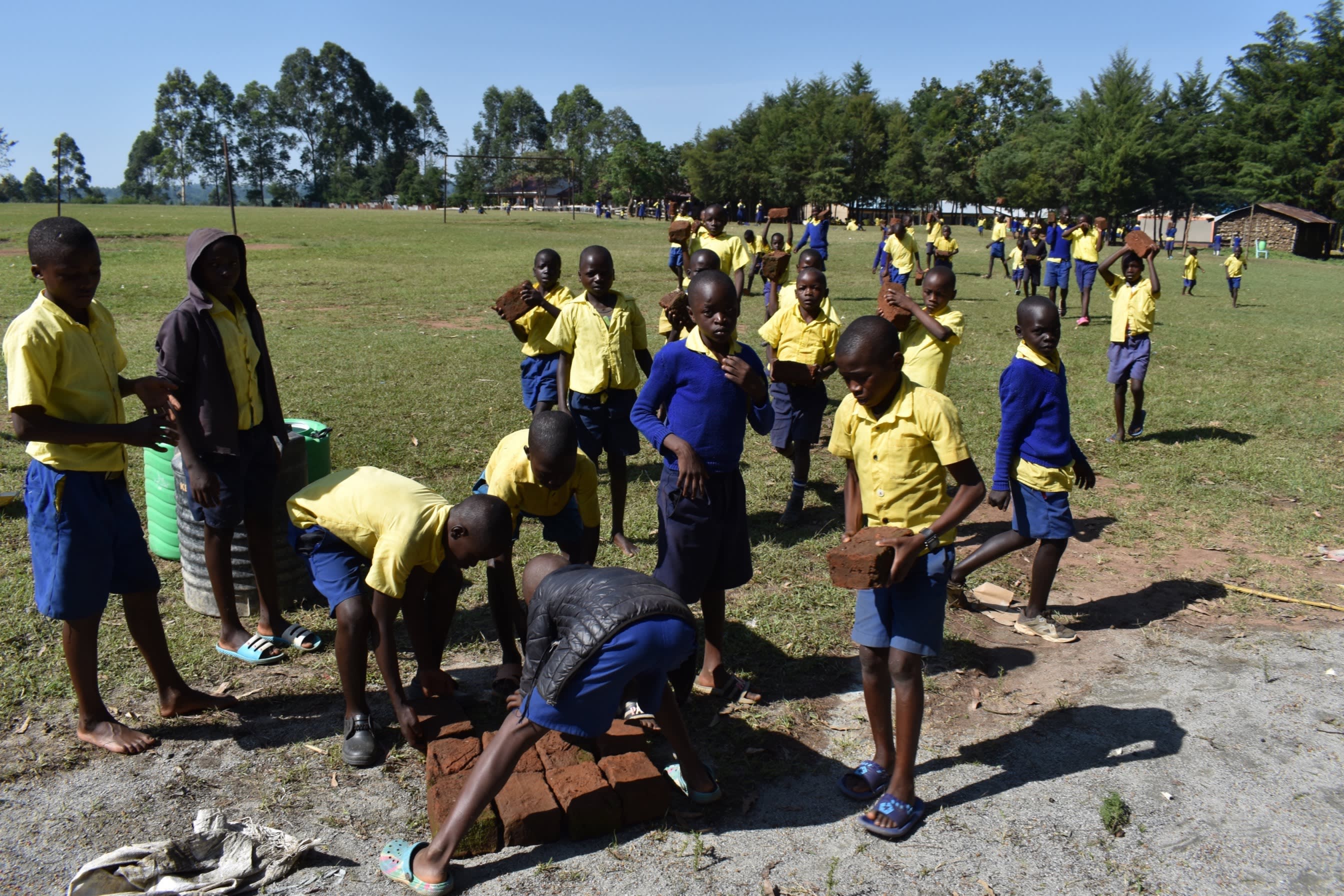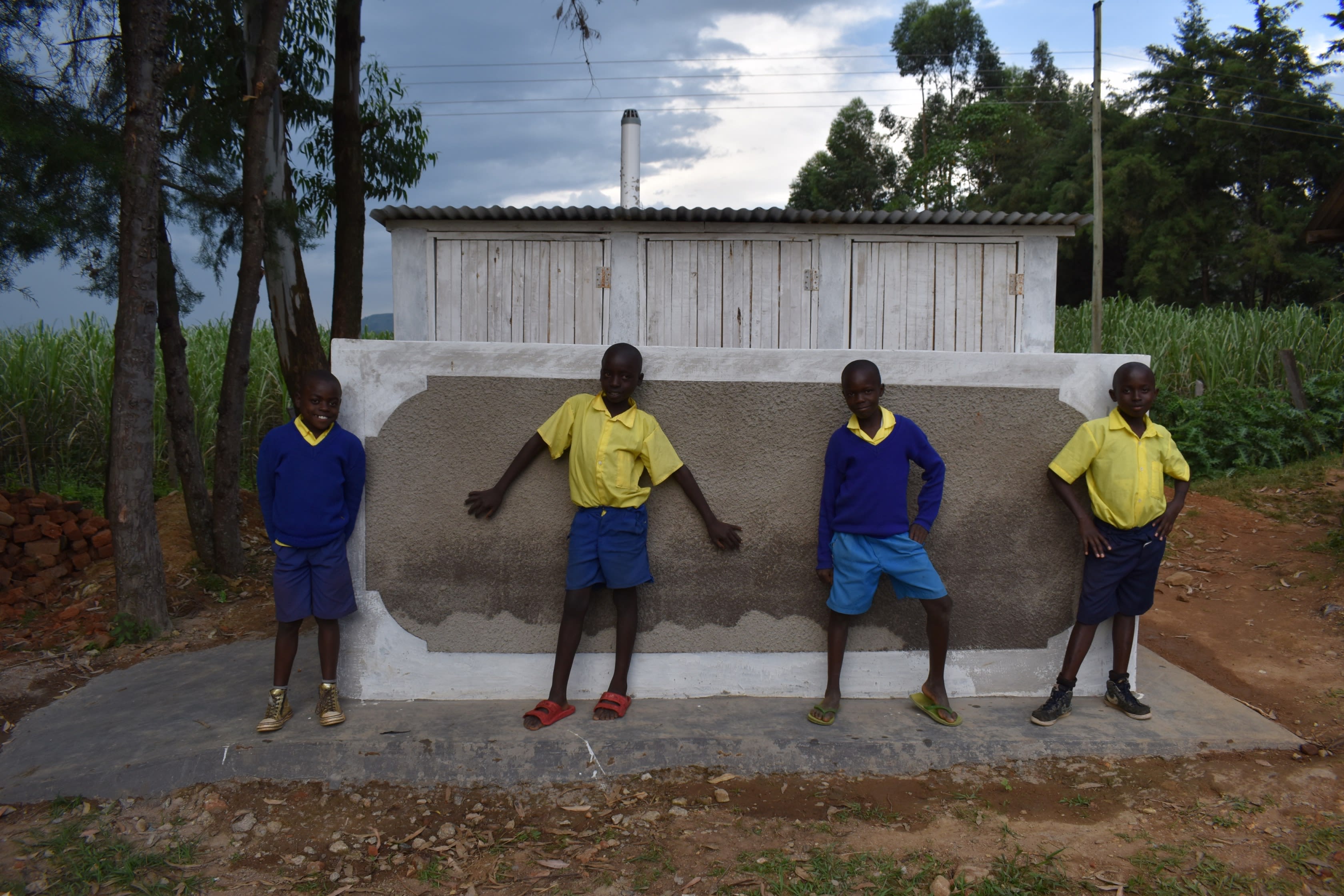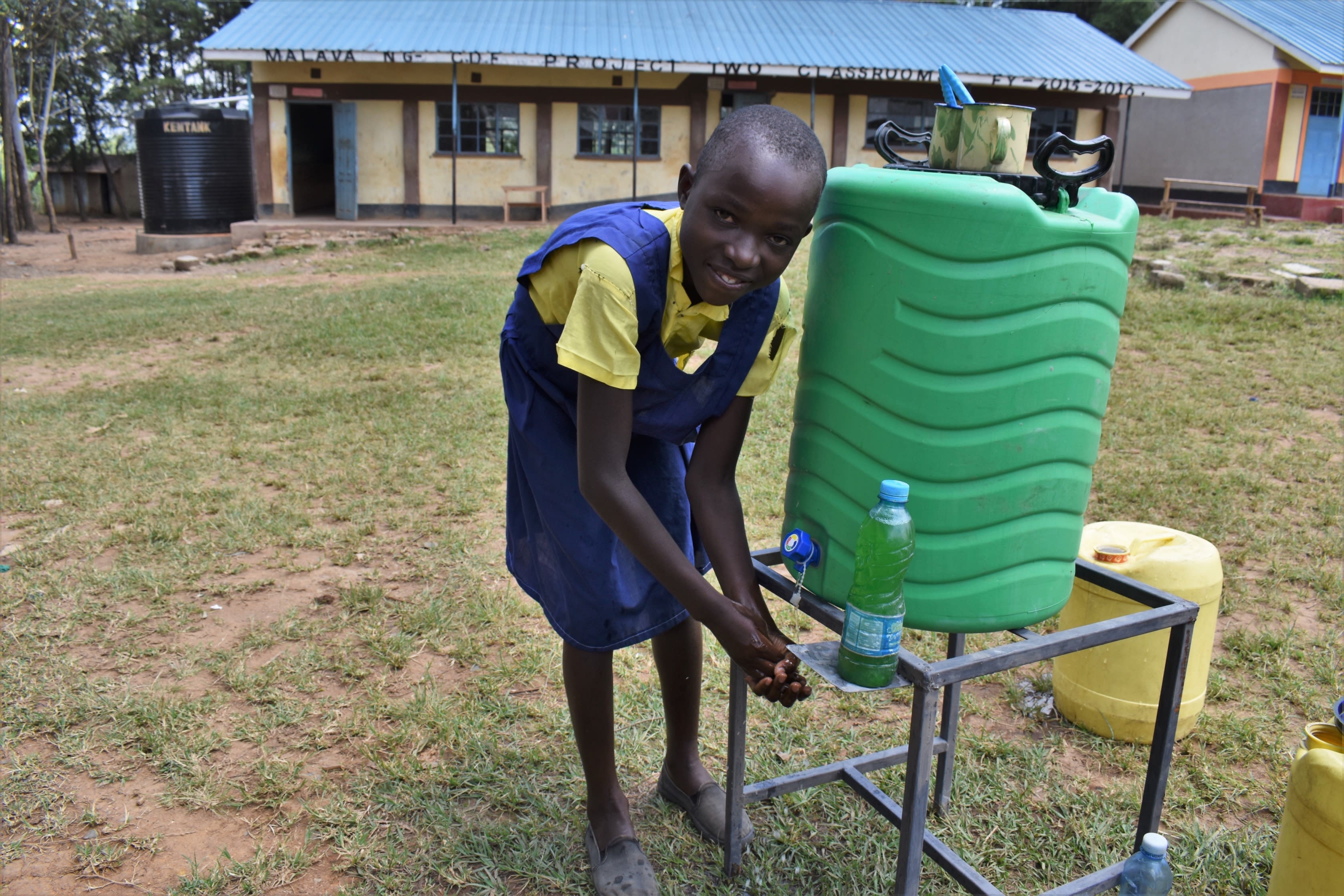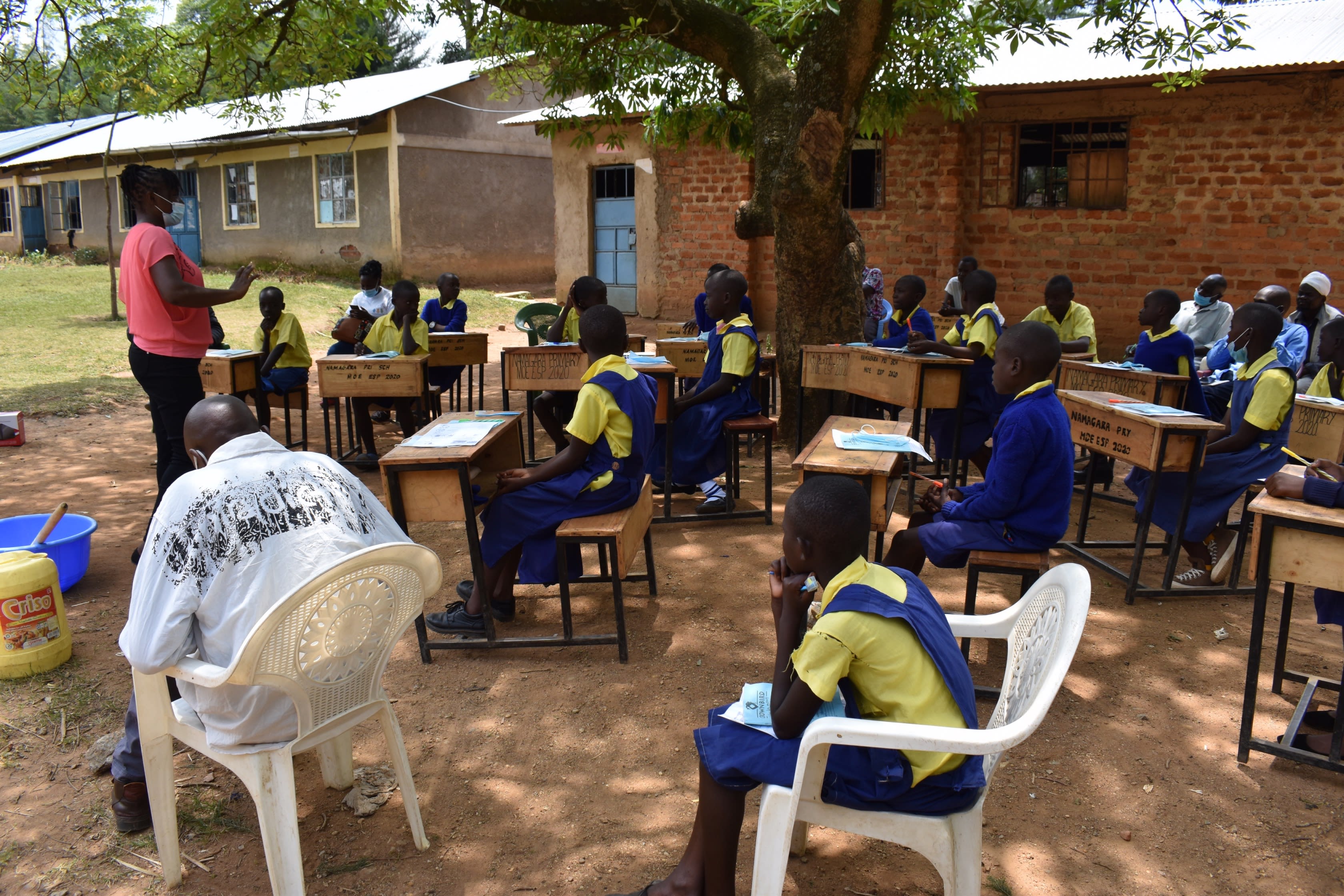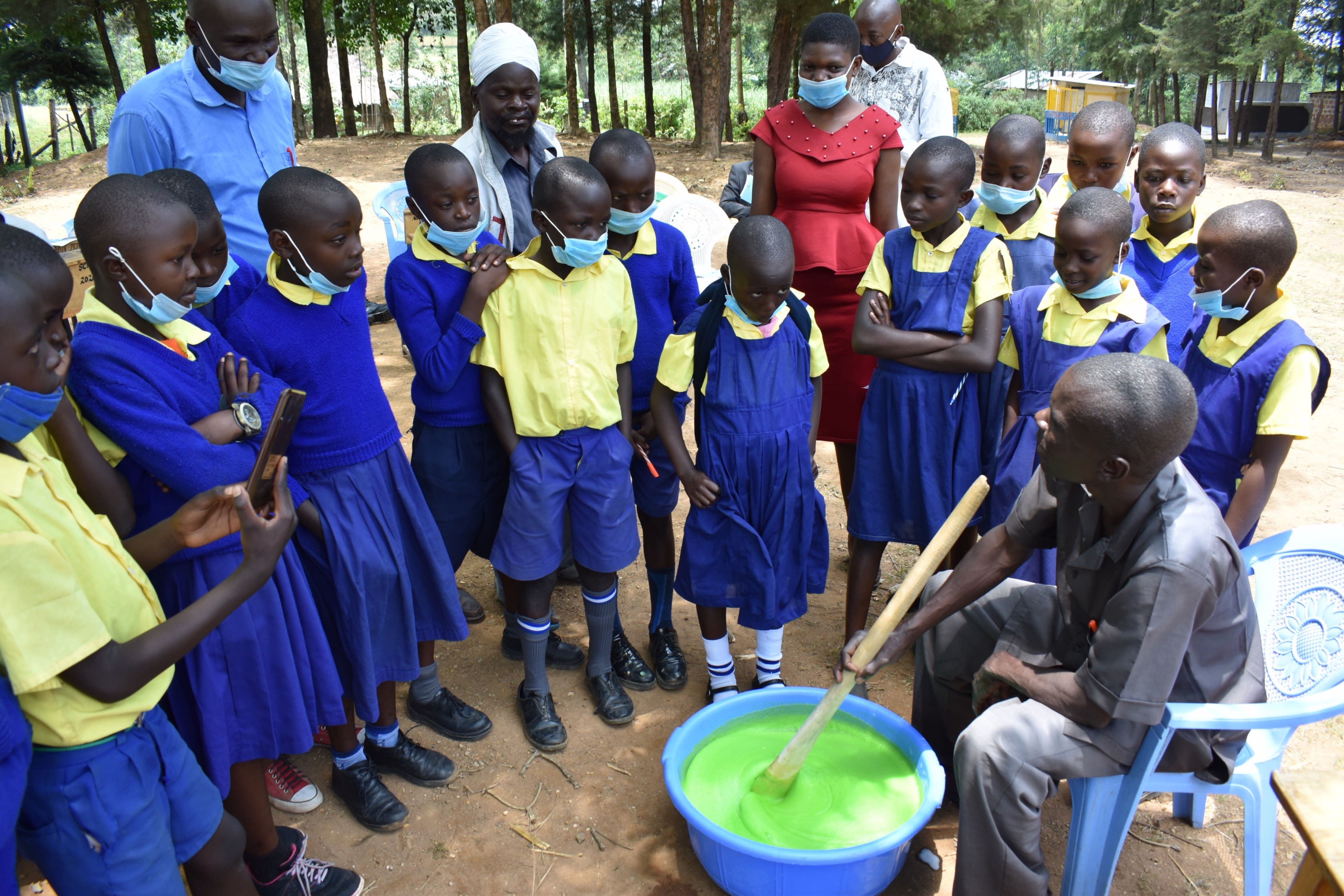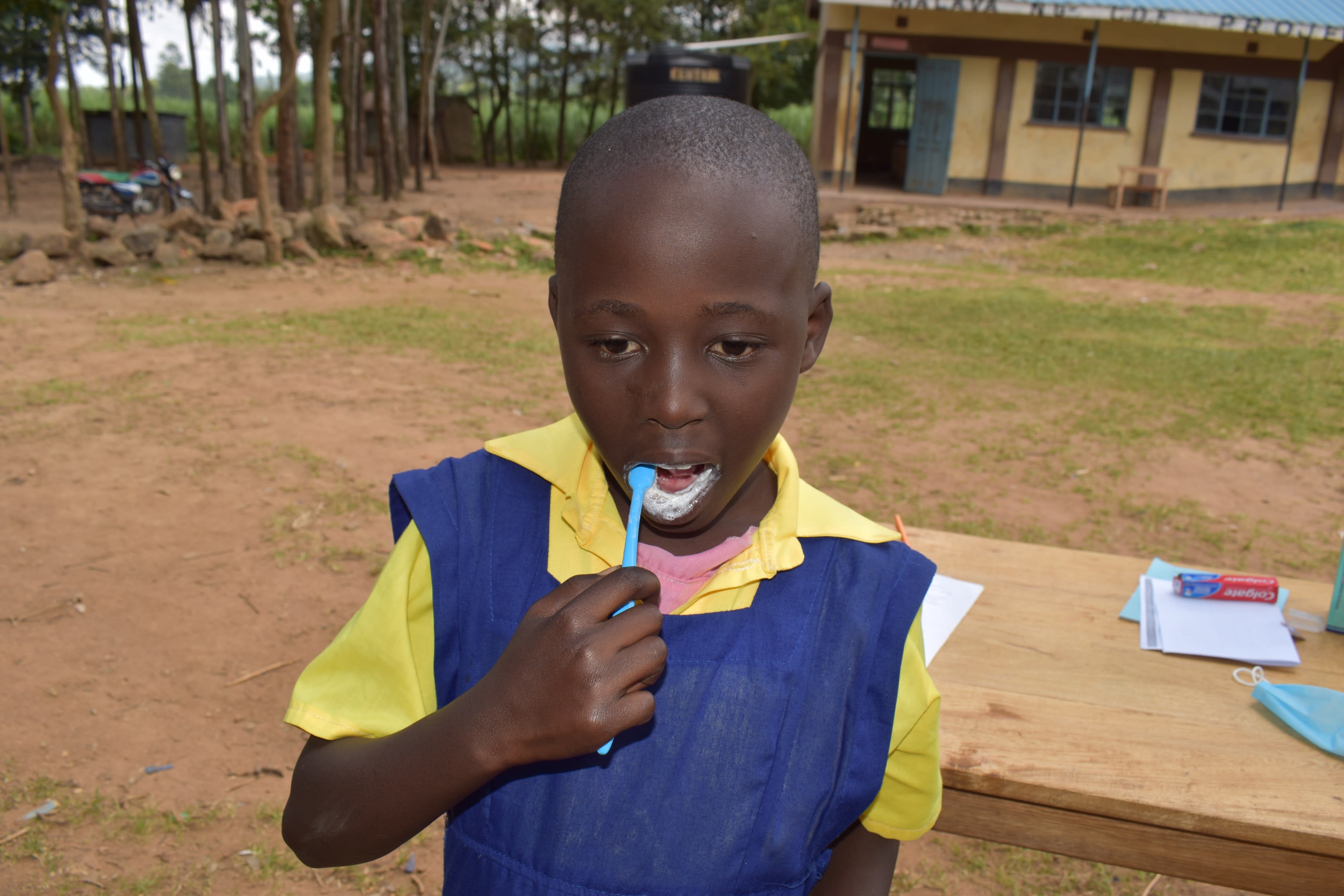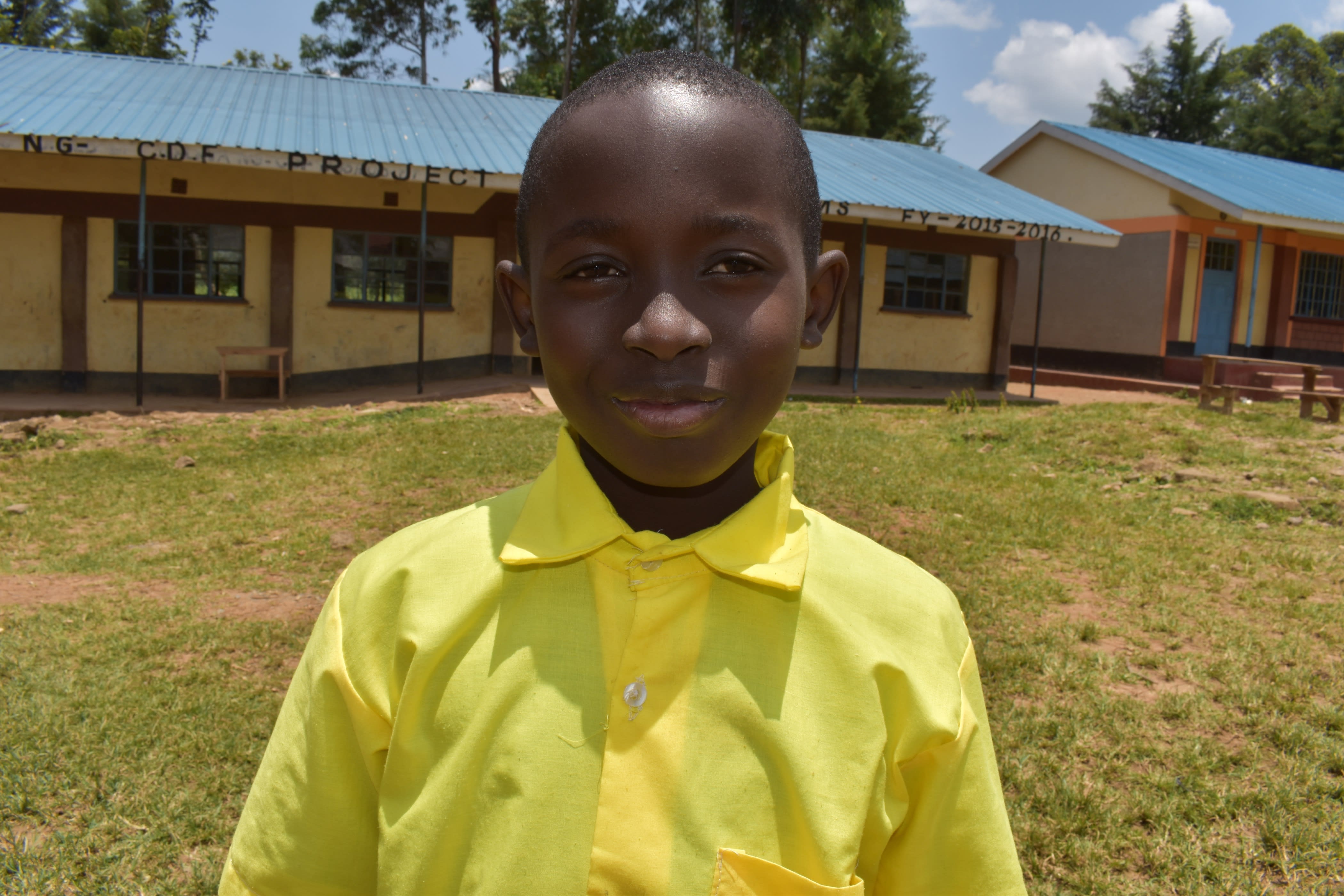"Sometimes the community members deny us water because a few students tend to damage their farm produce so we can stay thirsty a whole day because we cannot get the spring water - that is the only water we drink."
This is the reality of the water crisis for the 719 students and 20 teachers and staff at Namagara Primary School, as explained by student Timinah. This school's fight for clean water has been a difficult one with many ups and downs, but they refuse to rest until their students have clean water.
The school's main water source is supposed to be a standpipe that was installed on school grounds, but for the last year, the pipe has sat damaged and unusable. The tap was stolen and the pipe cut, making the water point completely nonfunctional. There have not been any communications or repairs from the water company to help fix this pipe.
Now, more than 700 students are back to relying on 2 different water sources in the community for all of their drinking, cooking, and cleaning needs. Drinking water is collected from a spring located downhill from a community member's farm which relies heavily on animal manure. A large amount of it is visible in the spring area. The spring's makeshift protection was not done up to standard, allowing the uphill farm runoff to seep into the spring. The spring water itself sports particles in it, indicating damage from within the spring box. The water here is not safe for consumption, and the spring's discharge is said to be extremely low over the dry season. With long lines for both students and community members to fetch water, this is where arguments and bad feelings come into play such as Timinah mentioned.
There is also a stream in the community where students are supposed to fetch the water used only for cooking and cleaning, but Head Teacher Mr. Felix Soita noted that some mischievous kids fetch it for drinking anyway to avoid going to the spring, which is further away. The stream is used by everyone and everything in the community. Some bodaboda men (motorcycle taxi drivers) wash their motorcycles in it, and others take their animals there to drink. Women will also wash their clothes directly in the stream. All of these clear signs of contamination are done mostly upstream from where the students fetch water, as the stream is shallower and a little slower there.
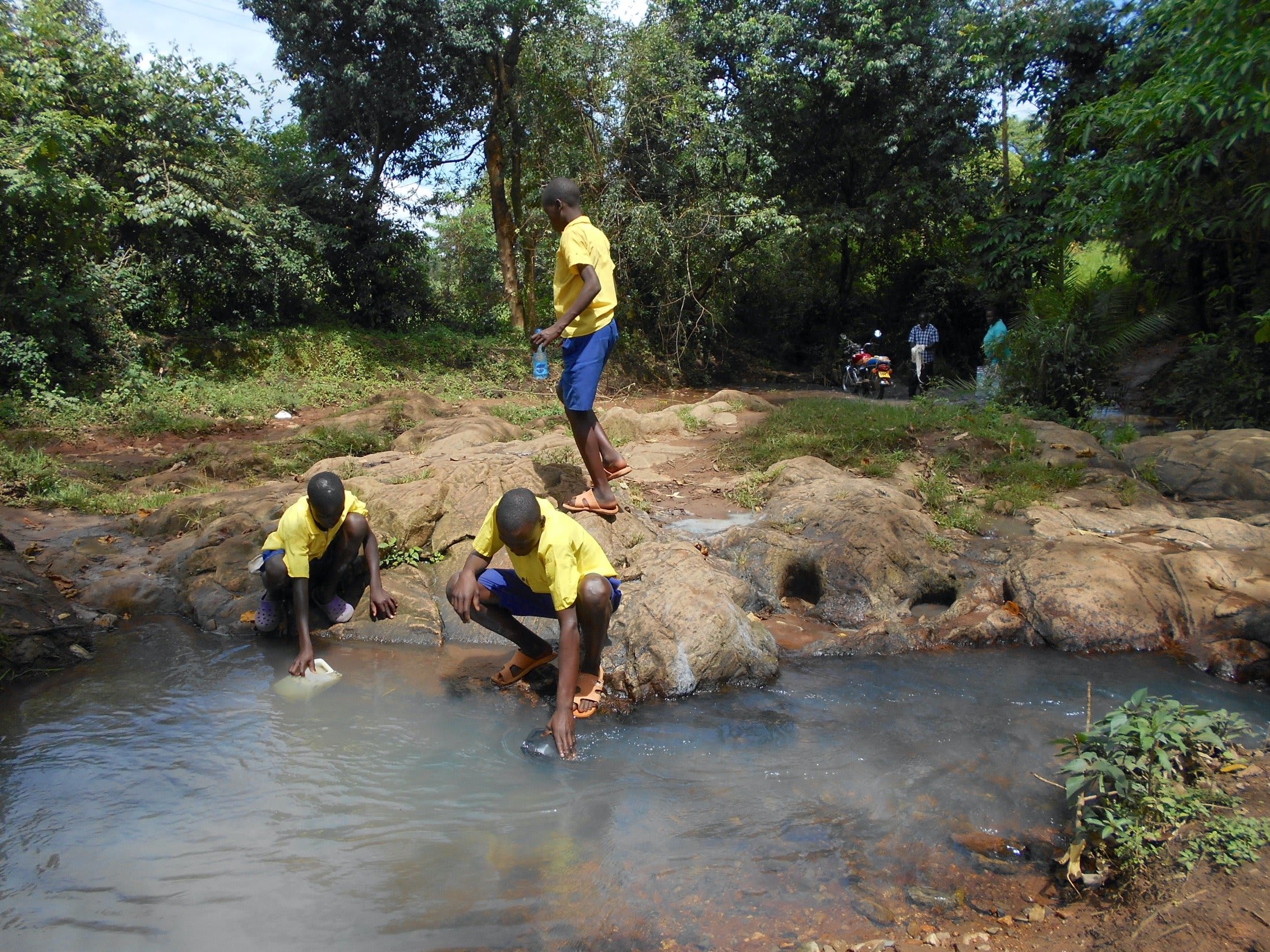
The stream water is extremely unsafe to drink, yet the cross-contamination of dirty water and dirty containers is all too common at school. At one point a few years back, a community member died of misdiagnosed cholera as a result of drinking the stream water. The community was cautioned against this water source and since then most people stopped drinking from the stream, but the school still relies on it for their needs. Currently, using the dirty stream water has made both students and teachers develop chronic diarrhea and dysentery, among other symptoms.
"As for me, I cannot drink this water. Every time I drink water that is not clean, it only takes a few seconds before pain emanates from my throat and this has cost me peace and a lot of money. To be on the safe side, I only drink boiled warm water," said Head Teacher Soita.
Time wastage and incomplete syllabi have been linked to the frequent water collection trips outside of the school compound. The first trip is made as early as 7:30 am when students are supposed to clean the school compound, followed by more trips throughout the day since students are asked to fetch water whenever it is needed. Students tend to make merry while out of class which has really poked into class time, teachers report. School finances have also been hit hard as a result of treating the illnesses arising from drinking the dirty water.
Namagara Primary School began in 1937 under the sponsorship of the Seventh Day Adventist Church and the community, originally hosting 180 pupils. The reason behind its establishment was to counter the distance their children walked to the other nearest schools, all of which were located more than 8 kilometers away and required pupils to cross dangerous rivers without bridges. Today, these pupils' challenges with water have taken a new form, but their fight for clean water continues.
What We Can Do:
New Well
We conducted a hydrogeological survey at this school, and the results indicated the water table beneath it is an ideal candidate for a borehole well. Due to a borehole well's unique ability to tap into a safe, year-round water column, it will be poised to serve all of the water needs for this school's large population, even through the dry months.
The school will help collect the needed construction materials such as sand, rocks, and water for mixing cement. They will also provide housing and meals for the work team, in addition to providing local laborers. We will complement their materials by providing an expert team of artisans and drilling professionals, tools, hardware, and the hand-pump. Once finished, the school’s students and staff will use water from the well and staff for drinking, handwashing, cooking, cleaning, and much more.
The school and we strongly believe that all of these components will work together to improve standards at this school, which will help lead to better student academic performance and unlock the opportunity for these students to live better, healthier lives.
Handwashing Stations
The student health club will oversee the two new handwashing stations we will provide and ensure they are kept clean and in working condition. The club leaders will fill the handwashing stations with water daily and make sure they are always supplied with a cleaning agent such as soap or ash.
VIP Latrines
Two triple-door latrine blocks will be constructed with local materials that the school will help gather. Three doors will serve the girls, and three doors will serve the boys. These new latrines will have cement floors designed to be easy to use and clean. And with a rain tank right on school property, there should be enough water to keep them clean.
Training on Health, Hygiene, COVID-19, and More
We will hold a one-day intensive training session with students, teachers, and parents. This training will cover a wide range of topics, including COVID-19 symptoms, transmission routes, prevention; personal and environmental hygiene; and the operation and maintenance of the rain tank, latrines, and handwashing stations. There will be a special emphasis on handwashing.
Our team of facilitators will use various methods to train, including participatory hygiene and sanitation transformation and asset-based community development. We will initiate a student health club, which will prepare students to lead other pupils into healthy habits at school and home. We will also lead lectures, group discussions and provide illustrative handouts to teach health topics and promote good hygiene practices within the school, including handwashing and water treatment. We will then conduct a series of follow-up training before transitioning to our regularly scheduled support visits throughout the year.

 Borehole Well and Hand Pump
Borehole Well and Hand Pump
 Rehabilitation Project
Rehabilitation Project












